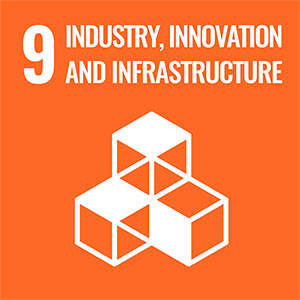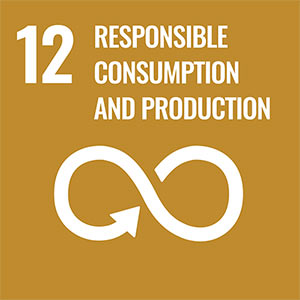MSc Production Engineering and Management
The master's programme in Production Engineering and Management handles the engineering and management aspects of production and how they interact. The engineering side includes manufacturing technologies, automation, maintenance, and production development tools and methods. The management side includes operations strategy, planning and management of resources for a sustainable production environment. Graduates work in various production fields worldwide.
Production Engineering and Management at KTH
The master's programme in Production Engineering and Management provides a solid foundation to become a professional with knowledge in both engineering and management aspects of production and their interaction. The engineering side includes operation and integration of manufacturing technology, automation, maintenance and quality aspects, production development tools and methods, and software. The management side covers systematic decision-making, operations strategy, planning, control and management of resources essential for achieving a sustainable production environment.
To create a strong foundation in production engineering and management, all students follow a certain number of mandatory courses. In addition, you can deepen your knowledge in production engineering, development and management, as well as information management in the industry.
The programme emphasises both theoretical knowledge and applied skills covered through project courses, individual and group assignments, individual and group laboratory works, and industrial visits. Furthermore, to maintain relevance to the state-of-the-art industrial developments and research, leading researchers and industrial professionals are invited to share their knowledge with our students. The educational activities and structures promote self-learning, teaching you how to communicate effectively with different stakeholders, and generating a study environment that provides equal learning opportunities.
After graduating from the programme, you will have:
- Basic understanding of various dimensions and functions of the broad field of production.
- Analytical skills essential to tackle the ever-changing problems and situations of modern competitive production.
- Conceptual and reasoning skills with appropriate decision support methods and tools used in production management.
- Communication and presentation skills necessary for leadership positions.
- Knowledge of how environmental and cultural differences affect the production process.
- Understanding of the need and requirements for sustainable and energy-efficient production processes.
This is a two-year programme (120 ECTS credits) given in English. Graduates are awarded the degree of Master of Science. The programme is given mainly at KTH Campus in Stockholm by the School of Industrial Engineering and Management (at KTH).
Courses in the programme
The courses in the programme cover topics such as manufacturing technology, measurement and metrology, information management in industry, computer-aided design and manufacturing, modelling and simulation, assembly and automation, production development, sustainable production systems, maintenance and quality strategies, research methodology.
Courses in the master's programme in Production Engineering and Management
Future and career
As production is global, graduates from our programme are able to find positions as technical specialists, production developers, production engineers, production managers or consultants in various production fields worldwide. Some companies that employ graduates are Scania, Sandvik, AtlasCopco and Volvo.
During the studies, there may be opportunities to engage in research and other types of work at KTH as a research and teacher assistant as well as a student representative. Some graduates also continue their studies for a doctoral degree at KTH or other technical universities.
Sustainable development
Graduates from KTH have the knowledge and tools for moving society in a more sustainable direction, as sustainable development is an integral part of all programmes. The three key sustainable development goals addressed by the master's programme in Production Engineering and Management are:



Gender Equality: In the programme, our policy is that all students are treated equally within the study environment and education, regardless of gender, ethnicity or age. The environment gives you opportunities to train and develop your skills and learn how to interact, communicate and exchange experiences with other students professionally.
Industry, Innovation and Infrastructure: The programme addresses the challenges to industrial innovation in the courses. This is accomplished by industrial projects in close cooperation with manufacturing industry. The global student environment, with students from all around the globe, enables the creation of sustainable solutions for industrial challenges. The programme fosters the student in analysis, decision-making and prepares them for future industrial challenges.
Responsible Consumption and Production: Circular manufacturing is a mindset that has been implanted within the course. Key elements of discussions are material footprint, reducing waste, recycling products and materials, lean thinking and production, and other environmental issues.
Faculty and research
The programme is hosted by the Department of Production Engineering , which focuses on all aspects that support and enable production and aims to improve the sustainability and competitiveness of manufacturing industries. The industrial production area is broad and multidisciplinary and encompasses many issues. Among other themes, the research at KTH focuses on Smart Manufacturing Systems, Precision Engineering and Metrology, Circular Manufacturing Systems, Sustainable Production Systems, Digital Smart Production and Additive manufacturing. Most research is conducted with industrial partners and brings together researchers from different areas. As a student in the programme, you will gain access to an array of labs where this research is carried out.



